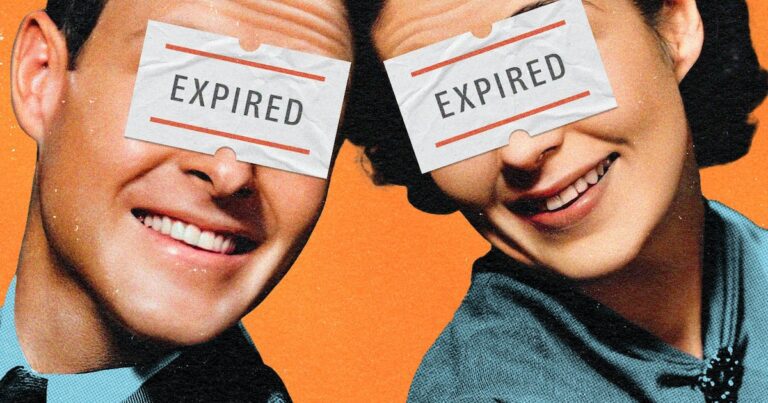
[ad_1]
I’ll never forget when our last couples’ counselor said to me in our one-on-one session over Zoom, “If what you’re telling me is true, there’s no relationship here to save.” After ten years of a relationship, eight years married, and six years of couples counseling with various organizations, both local and national, in just one session, my marriage was over. Two weeks later my husband and I separated amicably, and a huge weight lifted in my life.
I’m a huge proponent of therapy and any practice that helps someone better understand themselves, find some peace in this chaotic world, and further their self-love. I’ve been in some type of therapy since third grade and don’t plan to ever stop. This past year alone, in wrestling with the question about whether to stay in my marriage and how to further my own self-growth, I’ve been in intuitive therapy, worked with a Sharma, tried Psych-K therapy (it’s not a drug, although it sounds like one), studied enneagrams, explored my Human Design, and continued writing for my MFA program, because to me art is the ultimate therapy.
But my experience in couples’ counseling has been stifling, if not downright harmful. I don’t remember speaking or being asked to join in the discussion during our first experience at couples therapy, with a highly decorated doctor to boot. Most of the session was my husband venting his frustrations and the therapist accommodating him. Last winter, in a two-hour Zoom session with a therapist from Chicago, I was told I didn’t know “how to be vulnerable enough,” and “if I asked for something with an expected result, this was a demand, not a request.” I had broken my ankle, was non-weight bearing for eight weeks, was crying constantly, clearly depressed during this session, and yet asking my husband to make instant rice for dinner because I couldn’t was considered too much.
The final straw was this past summer, when we flew to Boston for an intensive couples’ session in a last ditch effort to save the marriage. The two days entailed eight-hour sessions, each with a one-hour break. During my private session, I was asked if “I thought I could start having sex with my husband again,” without any forethought into why I was, in fact, no longer willing to have sex with him. Then, at the fifteenth hour, when I pointed out that our main issue had not been addressed (my husband never seeing beyond his own needs), my husband rolled his eyes at me with contempt, I had a panic attack, and had to leave the room for 20 minutes. The session concluded with our therapist saying she was “hopeful for us,” because we had not encountered any external attacks on our marriage (adultery, bankruptcy, addictions, etc.). My panic attack was never mentioned.
All this reminded me of the scene in Untamed when Glennon Doyle’s female therapist suggested she should try giving blowjobs to her cheating husband, since Doyle (shockingly!) felt uncomfortable having sex with him anymore.
Couples counseling, like society, sells the belief that all marriages can be saved, just keep showing up to therapy, just keep trying. (Read Zawn Villines and her brilliant Substack, Liberating Motherhood.) We’re conditioned to believe that unless you experience infidelity or abuse, the relationship is salvageable if you just keep working on it; the you – of course — in this scenario is the mother. Instead of addressing the latent and often overt sexism inherent in all marriages or telling fathers they need to show up emotionally and help the household function on a daily basis, therapists focus disproportionally on “communication” as the fundamental problem, telling women, like me, we’re not expressing ourselves properly.
But a good marriage is not solely about communication. It’s about action; it’s about seeing your partner as your equal; it’s about pulling your weight; it’s about repair; it’s about turning towards each other; it’s about taking responsibility; it’s about coming to the table as fully and as openly and as healthfully as you can. And the harsh truth is that some marriages aren’t salvageable, and in that case it’s advisable to walk away. Now, wouldn’t it be more helpful if couples counseling could help us discern the difference, as our last counselor did with me in just one session?
This is why, one month into our separation, when my husband asked if I wanted to go to couples therapy, I said no, and felt no guilt. I said if he wanted to see someone together to work on co-parenting through the separation and divorce, I was game. But I’d prefer to spend that money on traveling. He concurred, reluctantly, and we both agreed – our communication skills were improving.
[ad_2]